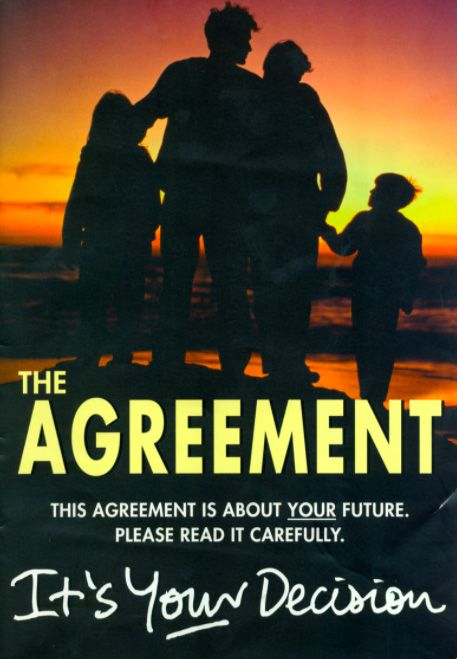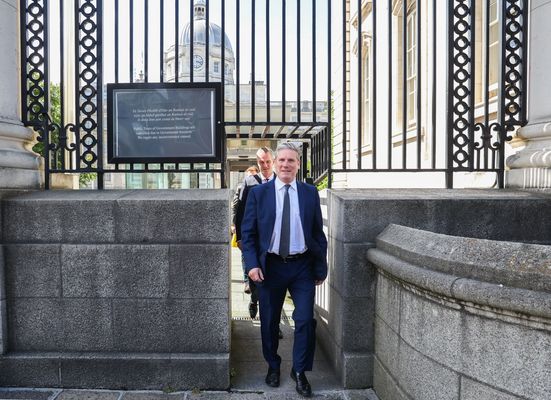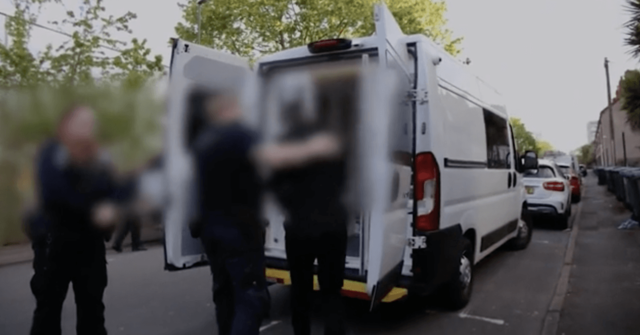GOOD Friday: time for meditation. Good Friday Agreement: time for reflection. As a social science researcher, teacher and learner, the parts of the Agreement that interested me most at the time were those covering rights, safeguards and opportunities. They still do, as the Agreement remains a vital international treaty on these matters. And as someone who believes that the best way forward lies in Irish unity, I was also interested in the parts covering “consultation, co-operation and action within the island of Ireland” (Strand 2).
Far from parking the issue of Irish unity with a referendum to take place at some unspecified time in the future, the Agreement set up the North/South Ministerial Council with the commitment, “to use best endeavours to reach agreement on the adoption of common policies, in areas where there is a mutual cross-border and all-island benefit… making determined efforts to overcome any disagreements”.
The ink was barely dry on the Agreement when Prof Paddy Hillyard led a team of researchers (myself included) in undertaking the first ever population-wide representative sample survey of poverty and social exclusion (PSE) in the North, funded by OFMDFM and other government departments. This was modelled on the British Millennium PSE Survey of 1999.
The Hillyard project differed from the British work in that the survey included questions on people’s experience of the conflict, such as the death of close friends and relatives, injuries, riots, bombings, shootings, imprisonment, house raids, and intimidation at work. We were also determined to collect and analyse the data in a way that would allow proper comparisons, not just on the conventional East/West basis, but also North/South.
There was significant resistance to including such questions in the survey. For some, ‘poverty’ was a politically safe, non-sectarian issue so why bring the conflict into it? There were more mundane objections: cost and respondent fatigue over too many questions to answer. Then there were concerns that asking people about what they had experienced and witnessed would trigger adverse psychological responses, so people would need back up advice on where to go for help. Lastly, there was the objection that people might get angry and attack members of the survey team.
But we managed to convince the steering group to go ahead with a pilot survey which included the conflict questions. Far from reporting hostility on doorsteps, the pilot survey team told us that the conflict questions had gone down well: “why has no-one asked us about this before?” was the feed-back quote I remember from the time.
Ten years later we repeated the PSE survey and included a similar batch of questions on experience of the conflict. There were no objections on this occasion. It was as if it had become acceptable to research the conflict because it was ‘history’: we were now in the 2010s.
All this springs to mind because of the recent publication of poverty statistics across Ireland and Britain. In February, the Republic reported on poverty (low income) and deprivation (enforced lack of clothing, heating, food etc) for 2022. It uses calendar years. In contrast, Britain uses April to March so the latest statistics (published at the end of March) are for 2021/22. It uses a different set of deprivation items and a different method of computing deprivation. And there are other differences.
The consequence of this is that not many of the published numbers are directly comparable North and South – after all these years and notwithstanding the onus on the chief executive of the North’s statistics agency to develop comparative data. But some are, or are roughly so, as long as we ignore the different time frames and some other factors. For example, income inequality North and South is about the same, but considerably higher in Britain. In the North, 18 per cent of children live in income poverty compared to 15 per cent in the South, but when housing costs are taken into account, the figure jumps to 28 per cent in the South and 21 per cent for the North, reflecting the housing crisis in the South. No comparisons are possible from the published deprivation statistics but, in the South, the proportion of individuals lacking two or more items from a list of eleven basic necessities rose from 14 per cent in 2021 to 18 per cent in 2022.
New episode of our 10 Minute Lesson series: Poverty and Deprivation in Ireland.
— Social Justice Ireland (@SocialJusticeI) March 9, 2023
Listen to Economic and Social Analyst, Colette Bennett, discuss the numbers & provide an overview of poverty & deprivation in Ireland today.
Listen here: https://t.co/3CgQlcD1ZV pic.twitter.com/7JR5yDRAln
Apart from the two PSE surveys, the lived experience of the conflict scarcely registers statistically. This gap is important because at a stage thirteen years after the GFA, our survey established a clear legacy of physical and mental ill-health imprinted across the population, a pattern directly associated with the depth of people’s experience of conflict-related events. For public services, this legacy mainly takes the form of increased pressures on the NHS and social security benefits. These impacts will gradually disappear over time, although some experts say that the effects get passed on to the next generation.
Such evidence is of little interest to recent British governments with their chosen priorities of austerity, followed by Brexit. They can’t even manage a smooth transition from European Social Fund support for a whole range of services provided by community organisations. Four years’ notice was not long enough apparently. Perhaps it’s because the people in charge have never experienced financial insecurity. Or worse, financial insecurity is a deliberate strategy, judging by the plans for new benefit sanctions and the regime that will replace the detested work capability assessment.
Community groups reliant on ESF funding have had cuts of up to 50%.
— Dub8Lady (@DubLoony) March 31, 2023
Thanks to #Brexit vulnerable people will be impacted, the Tories are not fully replacing the previous funding.https://t.co/qi2AJicrzz
While the finger can be pointed at Downing Street for undermining the Agreement and Anglo-Irish relations in its pursuit of Brexit and an anti-rights culture, the main source of corrosion has been the DUP which opposed the Agreement from the outset. In his book, “Making Sense of a United Ireland” (2022), Prof Brendan O’Leary recalls a conversation with Paisley Jr that took place shortly before Easter 1998. Paisley made it clear that the DUP’s strategy was to demand major revisions to any agreement, not to destroy it completely. “The GFA was targeted by the DUP for renegotiation even before it was signed,” writes O’Leary, “and it has remained the constant object of attempted renegotiation”.
A reminder, Donaldson + Foster opposed the GFA in 1998. The DUP weren’t in the room, and to this day remain anti-GFA.
— Glenn Bradley (@BradleyGJ) April 3, 2023
We are where we are because a right wing, anti GFA coalition thought they could use BREXIT to smash the GFA: nothing else will appease them.
Sin é
In the past, the DUP’s focus was on strangling Strand 2. Then there was the widespread use of petitions of concern within the Assembly to choke business and resist progressive change. In the five year period 2011-16, there were 115 petitions of concern, 86 of which were raised by the DUP. A mechanism designed to protect one community from discrimination by another, was being used promiscuously to veto all kinds of change, the notorious example being same sex marriage.
But the most insidious long-term DUP campaign is about undermining the GFA principle of simple majority consent for a referendum on Irish unity. In search of a permanent veto, the DUP pushes the idea of “parallel consent” or “dual consent”, meaning that any change would require the consent of a majority of nationalists and a majority of unionists.
If lack of acceptance of the GFA can be seen as undemocratic, rejection of the outcome of an election when you lose is anti-democratic. Witness Trump. Witness the DUP’s refusal to participate in the Assembly following the election in May of last year. Elected forums can only function if parties accept the outcome of elections, win or lose. The DUP, as losers to Sinn Féin, withdrew “losers’ consent”.
How politicians and others choose to mark the 25th anniversary of the GFA will be revealing. Two years have passed since the Loyalist Communities Council formally withdrew its support for the GFA. So whoever it represents will either stay home or be out on the streets of Newtownards and elsewhere trashing the houses of their former associates. News Letter columnists will carry on complaining that they were conned and the GFA was designed to edge them out of the union. The DUP will continue their internal debate on whether or not there is anything at all in the Agreement to “celebrate”.
Surprise surprise guess those who will refuse to celebrate 25 years of the Good Friday Agreement: 'the peoples peace accord'?
— Charlie Currie (@CharlieCurrie12) April 2, 2023
DUP/TUV
LCC
Non-real UDA
OO
It is any wonder more & more people are quietly & privately refusing to support these non-inclusive & undemocratic groups.
Most of the rest of us will mark the occasion by taking comfort from 25 years of a peace process, from the widespread commitment to “exclusively democratic and peaceful means of resolving differences on political issues”, and from the courageous efforts so many have made to come to terms with the painful legacies of the years of military conflict.







